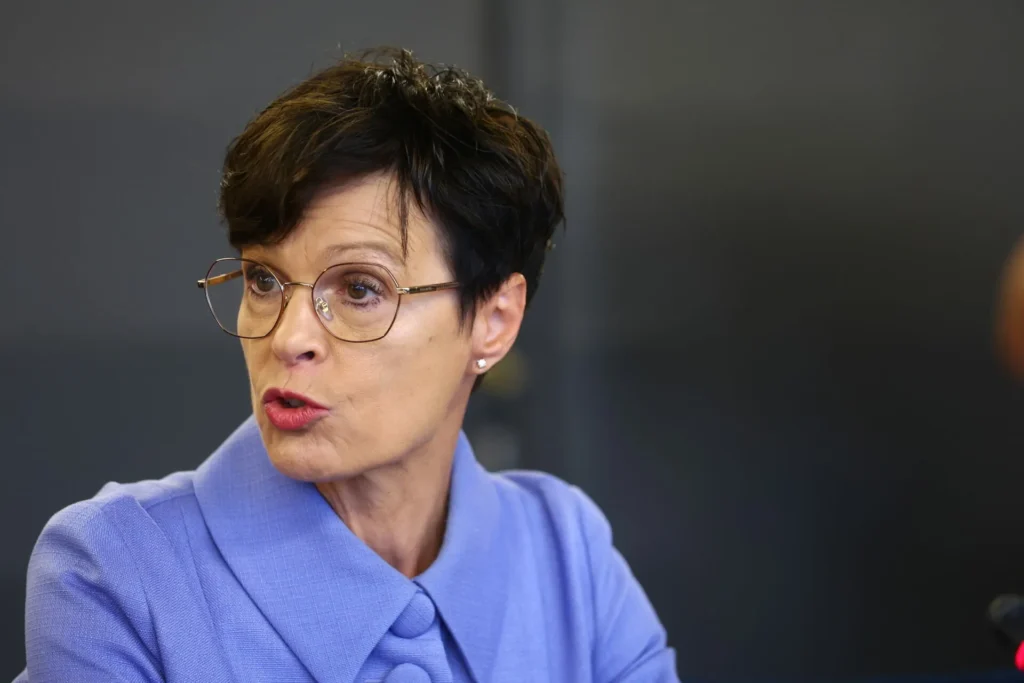Politico, the European-American political magazine, recently reviewed the political and personal (non-)integrity of the candidates for the positions of European Commissioners proposed by President of the European Commission, Ursula von der Leyen.
As initially reported, the European Parliament’s Committee on Legal Affairs, known as JURI, is reviewing the declarations of interest of all top European Union officials. At a decisive meeting held on Thursday, its lawmakers debated whether the 26 would-be Commissioners are capable of doing their jobs with complete independence (President Ursula von der Leyen was not included in the vetting process, as she has already been appointed). Politico pointed out that JURI even has the power to reject a candidate if it finds a major conflict of interest. But its members had just three days before Thursday’s meeting to review hundreds of pages of declarations submitted by the potential Commissioners themselves – in a process so opaque that there is little room for real scrutiny. A second meeting to continue discussions is expected in the next two weeks.
While none of the 26 potential future Commissioners responded to a request to share their declarations, Politico has sourced all of them and presented all the details. As they note, there is no indication that anyone has done anything illegal, but there were a few details that stood out when the statements were examined, including the extensive wealth portfolio of the Greek candidate and the Slovenian candidate’s consultancies.
The “millionaire” Kos was also under scrutiny
One of the candidates screened was Marta Kos from Slovenia. She declared around 1 million euros in cash in savings accounts. Politico pointed out that before becoming the Slovenian candidate for the position of Commissioner, Kos worked for the Brussels-based lobbying firm Kreab as a senior adviser and also had her own boutique consultancy registered in Switzerland. Pointing out that she herself has said she does not consider herself a lobbyist, Kos cited European football’s governing body UEFA as one of her clients for “advocacy” missions in 2021 at the level of the UN “and its most relevant bodies.” Politico, however, did not further investigate any possible links between her and the Slovenian UEFA president, who has employed a whole bunch of Slovenians in UEFA’s supporting bureaucratic industry, many of whom are also contracted there.
According to Politico, Kos, who could oversee the enlargement process, has kept quiet about the fact that her husband is the Swiss “Mr Europe” – Henri Getaz, the former Secretary-General of the European Free Trade Association (EFTA). Kos has not responded to Politico’s request for comment.
Politico has covered Kos in the past – from Russophilia and mobbing to the police
Politico has previously reported that the European Commissioner-designate, who is expected to take over the enlargement portfolio, is a left-leaning Slovenian who has also made conciliatory statements towards Moscow in the past.
They highlighted her statement from the year 2022, when she said the following: “We must be critical toward Russia, but we must not close our doors toward Russia. Slovenia has always had a good relationship with Russia, but under the government of [then-Prime Minister] Janez Janša, we saw a drift away from Russia toward the USA.”
They also reported that Kos was the Slovenian Ambassador to Germany and Switzerland between the years 2013 and 2020 but resigned following allegations of mismanagement by embassy staff. Politico therefore described Kos as a “defeated ambassador”. Among the reasons cited is her unexplained resignation as ambassador, where accusations of mismanagement were flying around and the results of an investigation by the Foreign Ministry were never made public.
They also highlighted her alleged links to the former Yugoslav secret police (the Directorate for State Security, also known as the UDBA), for which she supposedly worked. In view of all the scandals, her candidacy is seen as one of those at risk.
That is why Politico has put her on the list of those who they consider to be in danger of not becoming Commissioners.
What will JURI be checking?
On paper, declarations should include, for example, information from the past decade relating to previous employers, details of shareholdings in companies and other assets, and involvement with think tanks, political parties or NGOs. The declarations also apply to partners and children (but not to other family members). The rules are quite flexible, as Commissioners can choose not to fill in certain answers if they believe that there is no conflict of interest.
Whether MEPs go beyond what is written and do additional research is up to each individual legislator. While they can seek publicly available information, ask candidates for more details or even call them in for questioning, JURI Members do not have the power to fully investigate them.
Parliamentary politics also influence what might constitute a conflict of interest: some political groups decide not to ask questions about a Commissioner from an opposition group in exchange for a free ticket for their group’s Commissioner. Negotiations are not public, and statements are kept secret at all times.
As was written in the Politico article, “This is a deeply flawed process, devoid of transparency, where the rules prevent meaningful scrutiny of these declarations,” said Nicholas Aiossa, the director of Transparency International EU.
I. K.


